Jouni Susiluoto
Kernel-based retrieval models for hyperspectral image data optimized with Kernel Flows
Nov 12, 2024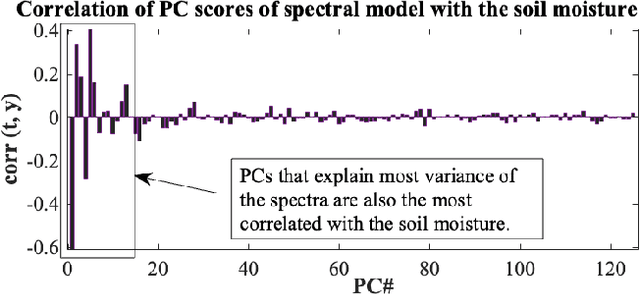
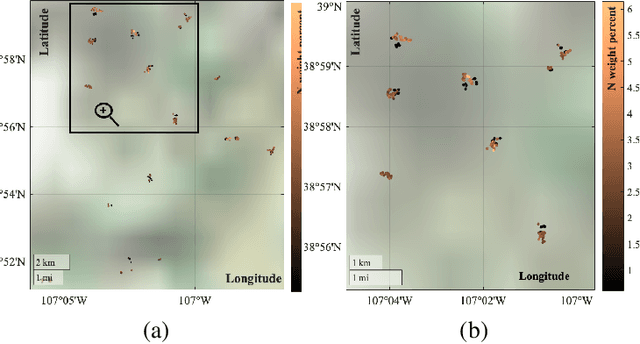
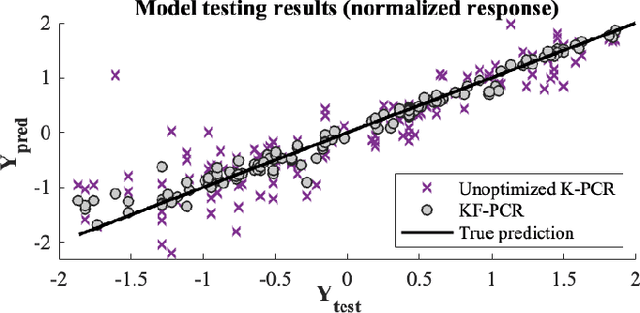
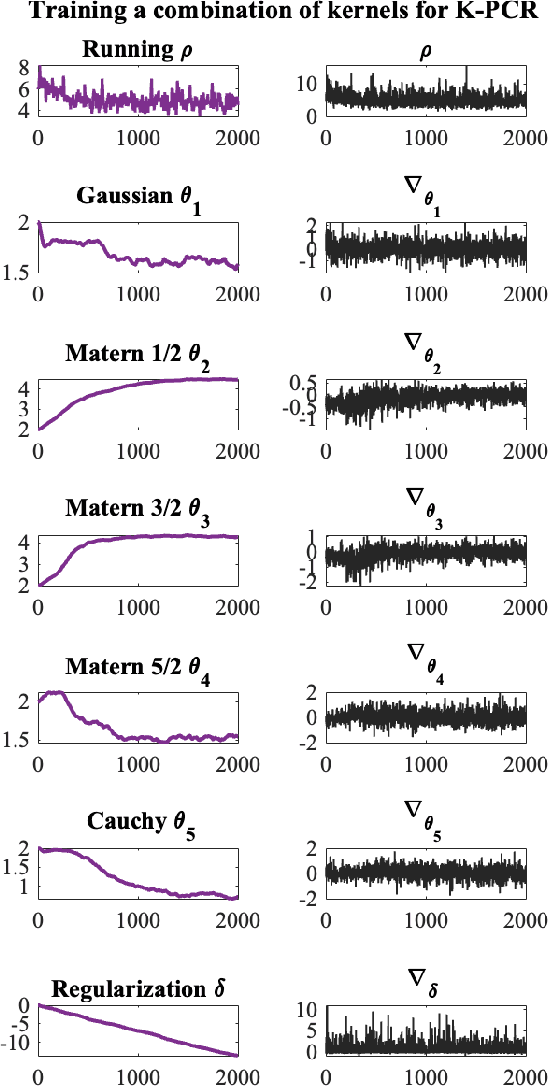
Abstract:Kernel-based statistical methods are efficient, but their performance depends heavily on the selection of kernel parameters. In literature, the optimization studies on kernel-based chemometric methods is limited and often reduced to grid searching. Previously, the authors introduced Kernel Flows (KF) to learn kernel parameters for Kernel Partial Least-Squares (K-PLS) regression. KF is easy to implement and helps minimize overfitting. In cases of high collinearity between spectra and biogeophysical quantities in spectroscopy, simpler methods like Principal Component Regression (PCR) may be more suitable. In this study, we propose a new KF-type approach to optimize Kernel Principal Component Regression (K-PCR) and test it alongside KF-PLS. Both methods are benchmarked against non-linear regression techniques using two hyperspectral remote sensing datasets.
KF-PLS: Optimizing Kernel Partial Least-Squares (K-PLS) with Kernel Flows
Dec 11, 2023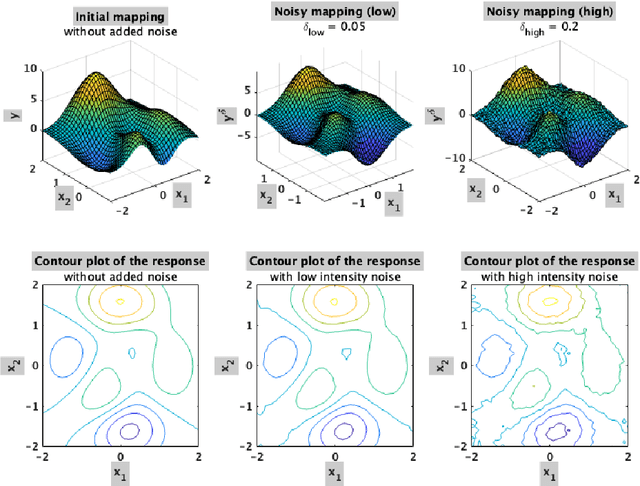

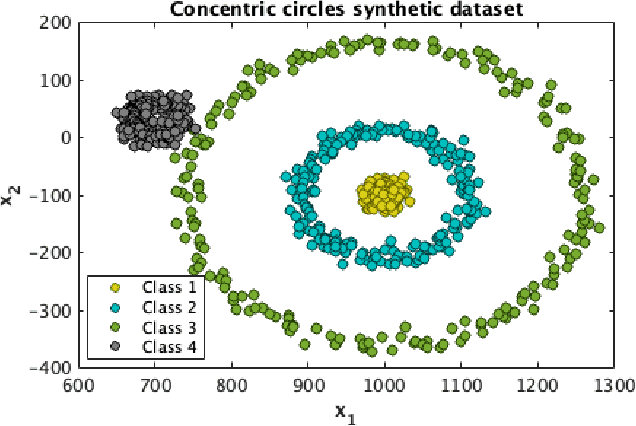
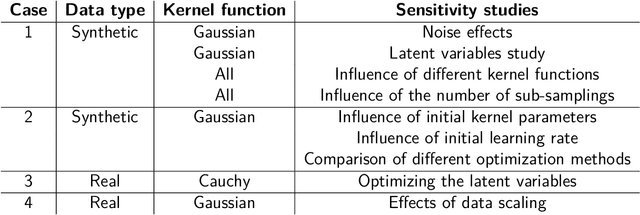
Abstract:Partial Least-Squares (PLS) Regression is a widely used tool in chemometrics for performing multivariate regression. PLS is a bi-linear method that has a limited capacity of modelling non-linear relations between the predictor variables and the response. Kernel PLS (K-PLS) has been introduced for modelling non-linear predictor-response relations. In K-PLS, the input data is mapped via a kernel function to a Reproducing Kernel Hilbert space (RKH), where the dependencies between the response and the input matrix are assumed to be linear. K-PLS is performed in the RKH space between the kernel matrix and the dependent variable. Most available studies use fixed kernel parameters. Only a few studies have been conducted on optimizing the kernel parameters for K-PLS. In this article, we propose a methodology for the kernel function optimization based on Kernel Flows (KF), a technique developed for Gaussian process regression (GPR). The results are illustrated with four case studies. The case studies represent both numerical examples and real data used in classification and regression tasks. K-PLS optimized with KF, called KF-PLS in this study, is shown to yield good results in all illustrated scenarios. The paper presents cross-validation studies and hyperparameter analysis of the KF methodology when applied to K-PLS.
 Add to Chrome
Add to Chrome Add to Firefox
Add to Firefox Add to Edge
Add to Edge